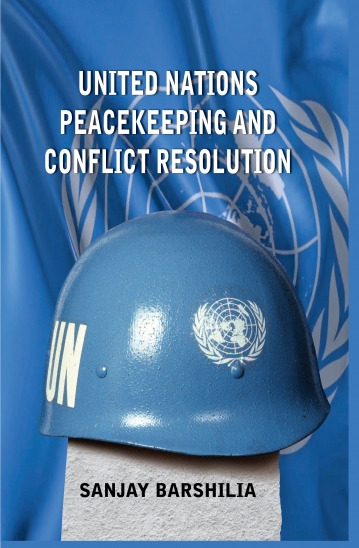 By Sanjay Barshilia By Sanjay Barshilia
Price Rs.680
United Nations Peacekeeping and Conflict Resolution Sanjay Barshilia
9789387324428 | Rs 680.00 | 186pp | PB | 2018 | Politics | International Relations
Book 40 million people have perished due to wars and conflicts since the formation of the United Nations in 1945 till 1990. The figures since 1990 are even more staggering. Inter-State conflicts have given way to intra-state conflicts with host governments, in many cases, a part of the problem than solution. The lines between state and non-state actors are blurring fast. Has the UN peacekeeping kept pace with the fast changing nature of conflict? Are the ‘pen-holders’ ready to look beyond their own national interests? Is the United Nations as an agency of world peace even relevant in today’s context? This book makes an attempt to answer these pertinent questions that are gnawing at the conscience of the world leaders. The book builds a case for the world to move away from the established traditional approaches at resolving conflicts and gravitate towards newer, more practicable methods, keeping in view the nature, character and ground realities of emerging conflicts of the 21st Century. The author attempts to build a consensus, provide policy prescription and advocacy on effectively tackling contemporary issues beleaguering UN Peacekeeping and suggest a roadmap to address the future challenges and emerging needs of UN Peacekeeping in Conflict Resolution.
Author Sanjay Barshilia fought the Kargil War at a very young age of 23, which left within him a deep understanding of the ultimate price societies pay in the wake of a conflict. Striving for peace, he says, is not a matter of choice but a necessity. His experiences as an Observer in the United Nations Mission in Ethiopia and Eritrea led him to pursue research at Centre for Land Warfare Studies, New Delhi as a Senior Fellow. He is also a sought-after faculty at various peacekeeping training centres across the globe. This book is the outcome of his experiences, research, visits and interactions with peacekeeping community worldwide.
Contents Abbreviations Foreword Acknowledgments Summary Key Recommendations 1. Syria, Yemen and Ukraine: Oscillating Between Preventive Diplomacy, Conflict Resolution and Countenance of the United Nations 2. Global Flash Points, Changing Nature of Conflict and the Evolution of UN Peacekeeping 3. UN and Conflict Prevention 4. Contemporary Challenges to UN Peacekeeping 5. South Sudan Case Study – A Long Road to Peace 6. The Need for a New UN Partnership 7. India and the UN Epilogue Index
|


